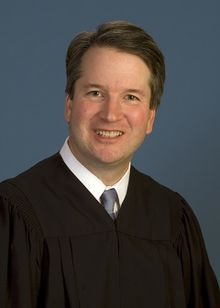For the past seven weeks, I have had the pleasure of working for the Center for Competitive Politics, the nation’s largest organization dedicated solely to protecting First Amendment political rights. My conviction to promote free political speech drew me there, and my fervent adherence to the Constitution kept me engaged. In my work, I saw the trite platitudes of the speech regulation community, the diligent efforts of the Supreme Court, and the general intrigue of Americans mix into a melting pot of perspective on the issue. For me to turn this pot into a crucible was my general goal, hoping to purify muddled views into a more substantive body of opinion. I do so now, and will do so in the future.
“Discussion of public issues and debate on the qualifications of candidates are integral to the operation of the system of government established by our Constitution. The First Amendment affords the broadest protection to such political expression,” wrote the majority in Buckley v. Valeo. To foster uninhibited political speech, the Supreme Court ruled that money spent in the political process is protected under the First Amendment. From this understanding, restrictions on campaign financing, at the very least, impinge upon this First Amendment right.
The First Amendment’s guarantee that “Congress shall make no law…” means that laws regulating free speech are subject to challenge. The Roberts Court has decided several campaign finance cases that work towards the reduction of such speech stifling regulations. 2010’s Citizens United v. FEC decision held that individuals did not lose their First Amendment rights when incorporated, thus allowing corporations (as well as unions and trade associations) to make independent expenditures, that is expenditures independent of candidates, from their general treasuries. This session, in McCutcheon v. FEC, the High Court ruled that aggregate contribution limits on individuals were unconstitutional under the First Amendment. This trend towards deregulation is promising, and should be viewed as having a positive impact on our First Amendment rights.
The value of money in politics is inestimable. Constitutional rights aside, campaign spending enables challengers to compete against entrenched incumbents, individuals to voice their political opinions, and buttresses competition in the “marketplace of ideas.” Contrary to popular belief, money doesn’t buy elections. It promotes civic debate, offers a contrast, and gives candidates, especially challengers, a chance. It’s often said that money is the lifeblood of politics. If so, campaign finance regulations are bloodletting, with each new law cutting deeper into the veins of discourse.
Money has not flooded into the political system, as the pro-regulation community holds. Rather, political spending is a rivulet of broader consumer spending trends. In the 2012 election cycle, Americans spent roughly $7.3 billion on campaigns. In the same year, consumers spent $17.6 billion on Valentine’s Day, $10 billion on romance novels, and $65.5 billion on lottery tickets. Heart-shaped chocolates aren’t constitutionally protected. The value of Americans to express political views requires a different metric than a dollar amount, but if we measure power in dollar figures, it appears that Hallmark may have the upper hand on elections.
In his concurring opinion in Whitney v. California, Justice Brandeis wrote one of the best defense of free speech in the history of the Supreme Court. Within it, he said, “If there be time to expose through discussion the falsehood and fallacies, to avert the evil by the processes of education, the remedy to be applied is more speech, not enforced silence [emphasis added].”
As the complex web of campaign finance regulation often results in the silencing or deterring of opinions, it is not the remedy for the perceived flaws in our political system. The remedy, as Justice Brandeis so eloquently put it, is more uninhibited speech, not government-enforced silence.














